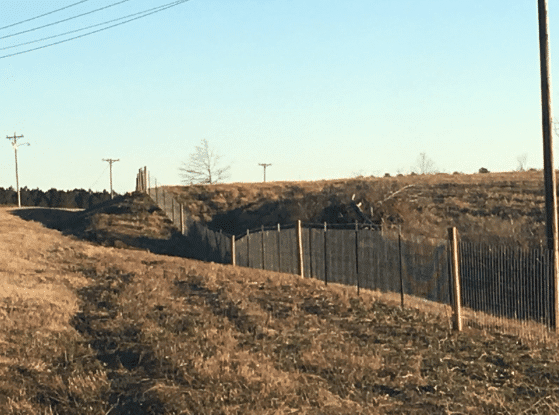Agricultural fencing is an essential part of any farm. It helps keep livestock contained, mark boundaries, and improve the appearance of the property. Plus, the right fence can provide security against everything from poachers to predators.
Livestock Management
One of the most important functions of agricultural fencing is to keep livestock contained. This is crucial for the safety of the animals as well as the protection of crops and personal property. A well-maintained fence will prevent animals from wandering off, getting lost, or being injured by predators. It can also help to control the spread of disease by keeping animals separated and quarantined when they are sick.
Boundaries
Agricultural fencing is also used to mark boundaries between properties. This is important for legal reasons along with giving the property owner peace of mind. A clear boundary fence can help prevent disputes with neighbors over land ownership and deter trespassers. If you’re planning to have a new fence put up on your property, you’ll want to get a survey to ensure that your fence is being laid on your property.
Appearance
A well-constructed agricultural fence does more than just mark property boundaries; it can also enhance the overall aesthetic of a farm. High-quality materials such as wood, vinyl, or even metal create a polished and professional look that reflects the farm’s commitment to quality and upkeep.
For instance, installing a classic wooden split-rail or white vinyl fence can complement the natural landscape, giving the property a traditional, rustic appeal. Additionally, an ornamental iron gate at the farm’s entrance can serve as a statement piece, elevating the farm’s appearance and creating a welcoming and prestigious look. This not only boosts curb appeal but can also make a positive impression on visitors, customers, or potential buyers, especially if the farm operates agritourism activities or retail operations.
Security
One of the primary functions of agricultural fencing is security. A well-designed and properly installed fence acts as the first line of defense against intruders, whether human or animal. By creating a physical barrier, a strong agricultural fence can help deter thieves and vandals who may attempt to trespass or damage property. This is particularly important for farms located in rural areas where monitoring access points is more challenging.
In addition to preventing unauthorized access, agricultural fencing plays a crucial role in protecting livestock. Keeping farm animals contained within the property prevents them from wandering into dangerous areas, such as roads, and reduces the risk of attacks from predators like coyotes or stray dogs. Depending on the type of livestock, electrified fencing or woven wire can be used for added protection, ensuring the safety of valuable animals and maintaining order on the farm.
Types Of Agricultural Fencing
There are many different types of agricultural fencing that you might consider, and each has its own list of pros and cons. Some of the most common types of agricultural fencing include:
- High-tensile wire. This fencing material is the apex of property protection. High-tensile fencing is stretched tightly between posts. They are strong, durable, and long-lasting. High-tensile wire is suitable for many different types of animals.
- Wooden fencing. Wooden fences are a traditional type of agricultural fencing, and wood fences are still in wide use today. They are relatively inexpensive to build, and they can be made to look attractive. However, wooden fences require regular maintenance, which includes cleaning and sealing, to prevent them from rotting and getting damaged.
- Chain-link fence. Chain-link fences are usually more suited to the backyard of a residential area instead of an agricultural area. However, chain-link, which is inexpensive to install, may be a suitable substitute for high-tensile wire if you only have a small area to contain.
- Electric fences. Electric fences are a type of fence that uses an electric current to deter animals from crossing a boundary. They are highly effective at keeping livestock away, and they can also be used to keep predators at bay. However, electric fences may be dangerous to humans, they require lots of maintenance, and they may not work when there’s a power outage.
Ultimately, the type of agricultural fencing you choose for your property should be based on your needs, budget, and goals. The right fencing can keep livestock contained, mark your territory, and even improve the overall aesthetic appeal of your farm or large property. There are many different types of fencing available, and each has its own advantages and disadvantages. Ask your fencing expert today if you need more information or advice on the type of fence that might be right for you.

